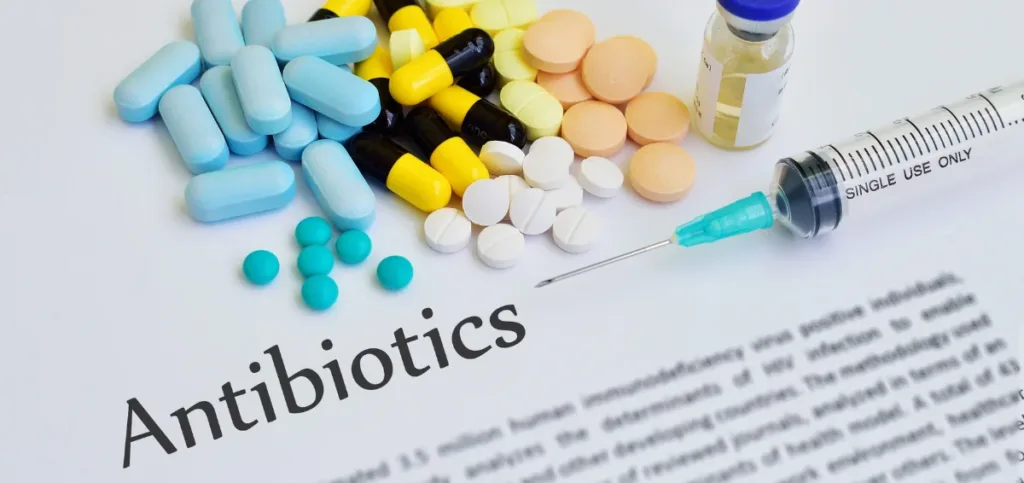
Antibiotics are highly effective drugs against bacterial infections, but they also have their drawbacks. Whereas most people first think of diarrhoea and stomach-ache when they hear the word antibiotics, another question will usually follow: Do antibiotics cause constipation? It is worth mentioning all that can occur due to the consumption of antibiotics, including some rare side effects, so that people will take more care of their health. We will explore how different antibiotics can cause constipation and how to manage this adverse reaction.
Understanding Antibiotics and Their Role

Antibiotics help kill off disease-causing bacteria that lead to diseases. Their non-selective action, however, causes disturbance to the ecosystem that shelters helpful bacteria within the colon. The gut flora is a vast collection of bacteria that are vital to intestinal processes, aid the body against disease and infection, and can influence a person’s mental state. Disrupting such a fine-balance ecosystem using antibiotics can manifest as diarrhea, bloating, or, in some cases, vomiting. However, this raises a question: Are there side effects on the excretion of waste in humans, particularly in terms of constipation?
Although it is not a well-documented occurrence, antibiotic use may, in rare circumstances, play a causative role in constipation. The gut microbiome can affect intestinal motility- the rhythmic movement by which stool is propelled through the system. One would expect that disturbing some bacteria and not allowing others to produce these substances would lead to a slowdown in the digestive process, with an additional result of dry, hard stool that is hard to pass.
Gut Microbiome: A Major Player in Digestive Health
The gut microbiome plays a vital role in the digestion of food and the maintenance of regular bowel movements. It comprises many living organisms, including bacteria, fungi, and viruses, which help break down food into forms that the body can absorb, producing essential vitamins and facilitating proper digestion. However, antibiotics disrupt the balance of this sensitive ecosystem and interfere with all factors associated with digestion, including increasing the volume of feces passed, which can lead to constipation.
Do Antibiotics Cause Constipation?
A concise answer would be occasionally. While constipation is not the most common side effect of antibiotics, it has been known to occur. Examples of antibiotics that have been sometimes cited as causes of delayed motility or constipation are the broad-spectrum antibiotics clindamycin or cephalexin. The antibiotics can act through:
1) Reduced Gut Motility: The loss of SCFA-producing bacteria can cause intestinal muscles to work less effectively, resulting in weakened contractions.
2) Altered Bile Acid Processing: Antibiotics can interfere with bile acid metabolism, potentially leading to the formation of harder stools.
3) Inflammation: In some people, gut inflammation triggered by dysbiosis may disrupt regular bowel movements.
These kinds of habits, combined with changes in your microbiome, contribute to an increased risk of constipation. So, while antibiotics do cause constipation, sometimes the actual story usually includes several different reasons all mixed.
Read Also: Can You Smoke Shrooms?
Other Factors That Worsen Constipation During Illness
The following are very crucial points that should be well understood to help deal with constipation effectively:
1) Dehydration: If you have a fever, sweat excessively, or fail to drink enough fluids, you will experience dehydration, which pulls extra water from the feces, making it more complicated.
2) Dietary shifts: The low-residue diets that individuals resort to when unwell are deficient in fiber, which is essential for stool bulk. Some processed foods, such as white bread and rice, may be detrimental.
3) Immobility: Prolonged confinement to bed decelerates peristaltic movement, while even a short stroll speeds up digestion.
4) Stress: The state of being unwell and medicated may lead to increased stress that disrupts the patient’s gut-brain axis and exacerbates constipation.
One can easily overcome constipation with efficacy if these factors are well understood.
Common GI Side Effects of Antibiotics: A Comparison
To comprehend constipation properly, we will first have to understand some of the common tummy issues related to the intake of antibiotics as follows:
- Diarrhea: C. difficile overgrowth or disruption of the normal colonic microflora can lead to diarrhea in 5–35% of patients.
- Nausea and Vomiting: This happens when you take erythromycin or amoxicillin, among other antibiotics.
- Bloating and Gas: The death of bacteria and the subsequent breakdown of undigested food are the causes of this.
- Constipation: It may occur, particularly in slow digesters.
With this knowledge, patients can differentiate between typical symptoms and those that require attention.
Preventing Constipation During Antibiotic Treatment
Do you fear that “do antibiotics cause constipation”? If your answer is yes, follow these remedies to reduce the chance;
1) Probiotics: Replenishing beneficial bacteria is crucial. Research indicates that certain strains, such as Bifidobacterium lactis and Lactobacillus rhamnosus, may help alleviate gastrointestinal (GI) symptoms. Consider probiotic supplements as well as fermented foods e. g., yogurt, kefir, or sauerkraut.
2) Stay Hydrated: Drink at least 8 to 10 glasses of water every day. You can also take herbal teas or broths as additional fluids
3) Prioritise fibre: After your appetite returns, try to incorporate high-fibre foods like apples, oats, beans, and leafy greens. On top of that, psyllium husk supplements might help increase stool volume
4) Gentle Exercise: Engage in short walks or simple stretching exercises to kick-start bowel movement
5) Monitor Medications: Some painkillers (e.g., opioids) or iron pills worsen constipation. Discuss this matter with your healthcare provider.
If constipation persists, osmotic laxatives such as polyethylene glycol (MiraLAX) or magnesium citrate may provide a temporary solution. Nonetheless, it is advisable to seek medical advice before taking laxatives because their misuse could lead to dependency on them.
When to Seek Medical Attention
Most cases of constipation can be resolved through lifestyle modifications, although one should be concerned and contact a physician in cases where:
- A person fails to excrete feces for three consecutive days.
- Intense abdominal pains or vomiting
- Passage of bloody stool or unexplained weight loss.
- Signs of analgesiaileus (e. g., lack of flatus).
Such symptoms may indicate issues other than those related to antibiotics: it could be an underlying illness or perhaps an adverse drug event.
Read Also: Air Purifier vs. Humidifier
Conclusion: A Balanced Perspective
So, do antibiotics cause constipation? Although this is not a very popular side effect of antibiotics, research indicates that they may cause it, particularly in patients who have problems with their gut functions or follow unhealthy lifestyles. A combination of factors, such as deranged metabolism due to gut pathology, consumption of inadequate diets, and lack of exercise, may support the occurrence of constipation in such cases.
Most individuals can prevent this by staying hydrated, eating foods rich in fiber, and taking probiotics to support their gut health. If the symptoms persist, it is essential to consult your healthcare provider. The fight against infections depends on antibiotics; however, understanding their side effects will help patients take their medication safely and correctly.










